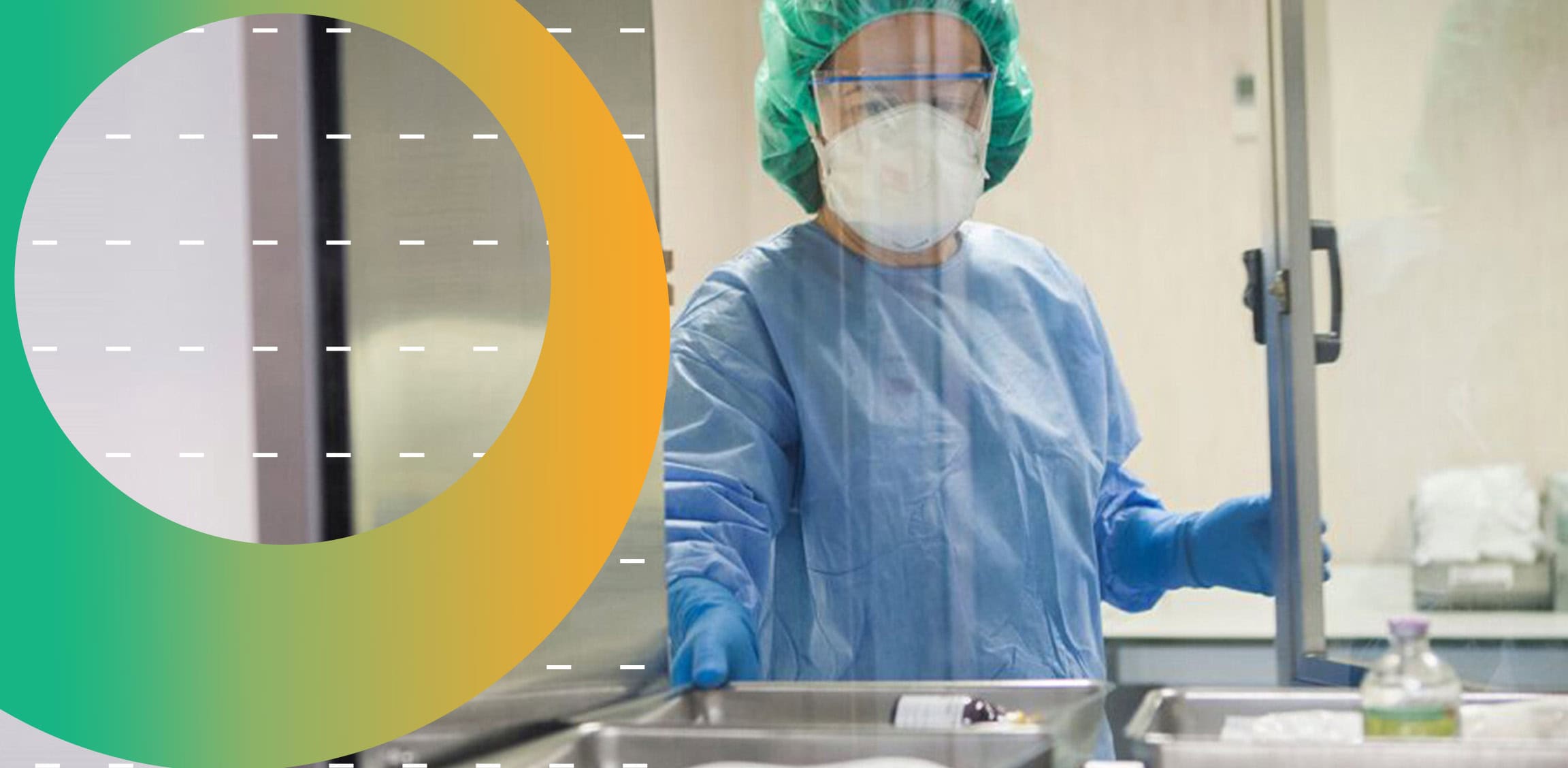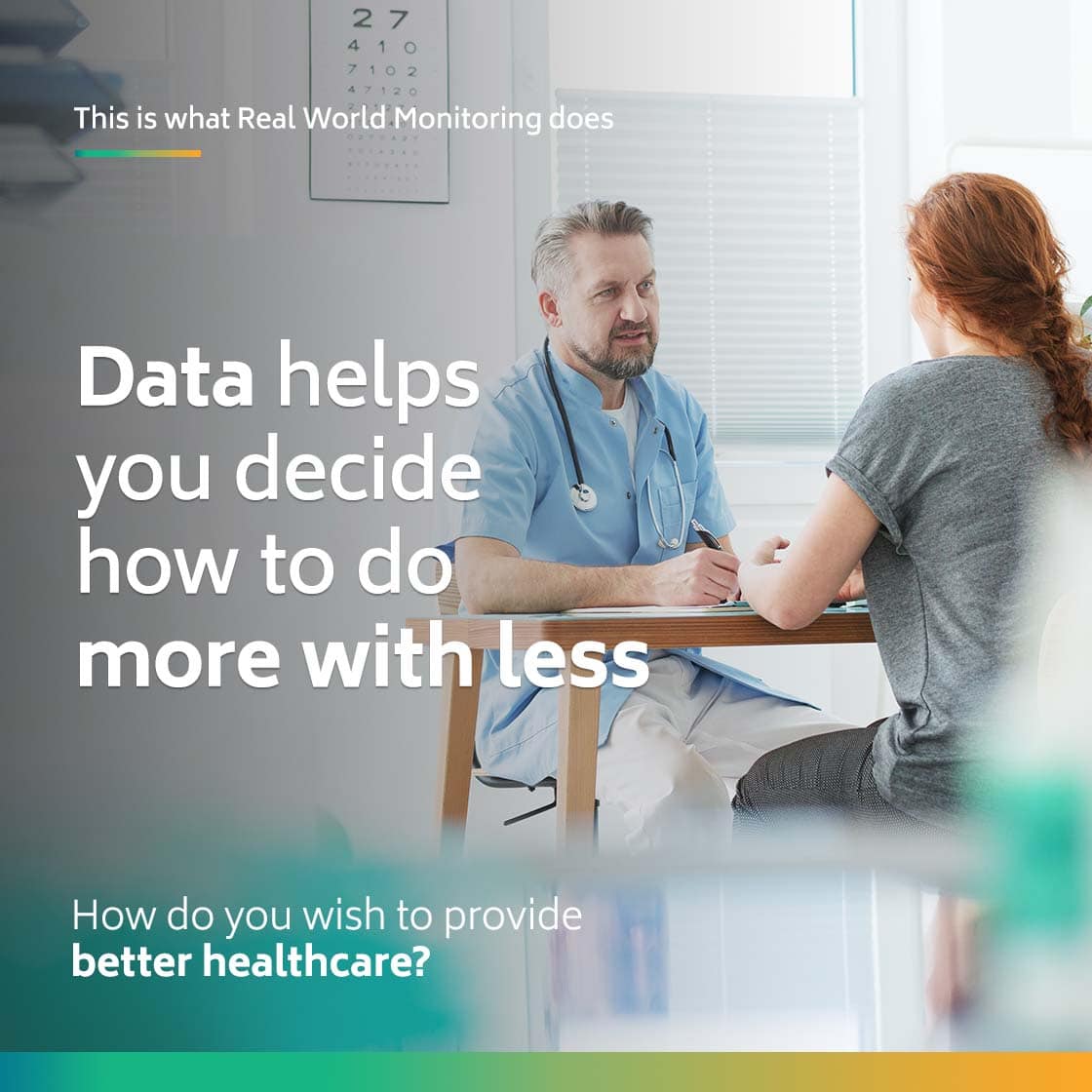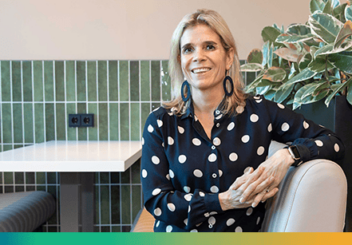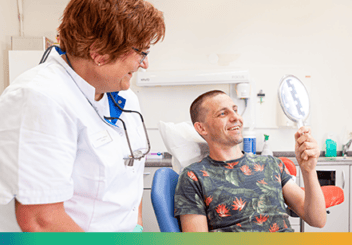
Which patient groups are prescribed a certain medication, and in which groups is it effective? To speed up the understanding of new drug effects, IKNL, in collaboration with Performation, launched a project to monitor the effects of (new) medications early after treatment begins. This pilot initially focuses on one type of haematological cancer.
The aim is to develop a more responsive healthcare system, explain head and neck oncologist Prof. Dr. Thijs Merkx (Radboudumc, Nijmegen), chair of the IKNL board, and haematologist Dr. Ward Posthuma (Reinier de Graaf, Delft), medical advisor to IKNL.
In recent years, the Dutch Cancer Registry (NKR), in consultation with healthcare professionals, has been enhanced with additional clinical data to improve benchmarking information. However, with the use of new medications, there is a growing need for quicker feedback from real-world data, in addition to clinical trials. To address this, IKNL launched the R(H)ONDA project (Realtime (Haemato-)Oncology Data).
Through this project, IKNL is partnering with Performation, whose Datagateway, installed in over forty Dutch hospitals, securely accesses current data on hospital admissions, procedures, and prescribed medications. Within the R(H)ONDA project, this data can be anonymously linked to the NKR, providing quicker insights into which new drugs are used in practice and their effects.

Up-to-date information is vital
Effectively managing a healthcare organisation using data is Performation’s focus, particularly in the areas of capacity management, finance, healthcare registration, and management information. Performation’s Datagateway provides access to years of up-to-date healthcare data.
The question now is whether this data can also be used for learning. “In the Netherlands, there’s an increasing debate about expensive medications: can we develop ‘decision-making information’ for the consultation room?” asks Thijs Merkx. “This question is coming from the Ministry of Health, Welfare and Sport, Zorginstituut Nederland, the EMA, and individual hospitals. With the growing number of new drugs, what are the decision points for allowing or discontinuing a drug? In the consultation room, the challenge is deciding who to give an expensive medication to, and why, and for how long. Oncology patients are often complex, with multiple other conditions. You can manually collect all the data a year after treatment, but it’s preferable to have that information right there in the consultation room when the patient is sitting across from you.”
Learning from the consultation room
The R(H)ONDA project was set up to observe what happens in different consultation rooms and learn from it. More and more medications are being combined in practice. Merkx: “The question is also: does everything that can be done, need to be done?”
Last year, we published the report ‘Metastatic Cancer in Focus’, which showed that for patients presenting with metastatic cancer over the last ten years, survival gains were only one month. Billions of euros have been spent on expensive medications for this. Even more distressing is that for these patients, quality of life did not improve. For melanoma and haematological patients, we see effects from these new, expensive drugs. But for metastatic stomach, bowel, and liver cancers, we rarely see an effect. We can establish this retrospectively, but we would prefer to have up-to-date decision-making information. Nothing is more difficult than having to tell a patient in the consultation room that they won’t receive a drug, especially when you don’t have all the information.”
Faster access to enriched data
Ward Posthuma refers to the Olympic motto ‘Citius, altius, fortius’ – faster, higher, stronger. “We’ve already enhanced the NKR data and now we are focused on ‘citius’; faster access to that enriched data. Stronger also means ensuring the legal framework and the proper setup of the digital infrastructure for this project. The ultimate goal is to reduce the impact of cancer. In the past, with NKR data, we’ve already made a difference in treating diffuse large B-cell lymphoma with R-CHOP. It was given every two or three weeks. We saw that survival rates were the same, but there was much more neuropathy with the two-weekly dosage, and it was more expensive due to higher infection rates and increased hospital admissions. But you have to look back over several years to draw that conclusion.
Now, we want real-time information. For example, in the use of expensive medications for lung cancer with all its different mutations. Another aspect is that randomised trials often have bias due to strict inclusion criteria. It’s better to look at the entire population, and a project like this can quickly provide additional information.”

Effective use
Performation is a natural partner, says Posthuma. “The company has secure access to source data in hospitals via the Datagateway. They can retrieve realtime data, up to the previous day. We’re linking this with NKR data, which creates a strong synergy. Recently, we held a ‘test run’ in one hospital to look at the use of daratumumab in multiple myeloma, and it works. Through the Datagateway, we know as of yesterday which patients there are and what medication they’re being prescribed.
Ultimately, we want to use medication effectively and efficiently, and big data is finally starting to contribute. It’s about short-cycle improvement, with good information.” Merkx adds: “Another factor is that a large portion of oncology patients today are diagnosed and treated in multiple hospitals. There’s a lot to be learned from this, and facilitate networks.”
This project benefits not only healthcare providers and patients but also society. Merkx: “You can use medication more effectively. If something isn’t working, you know sooner and can stop earlier.”
Source: The original, full article ‘RHONDA: up-to-date information on the use of new (haemato-)oncological medications’ was published in the medical science news magazine ‘Oncology Up-to-date’ and can be read online.
Photo of Thijs Merkx: (© Femke van den Heuvel)Header image: Andre Roque Almeida / Shutterstock.com



